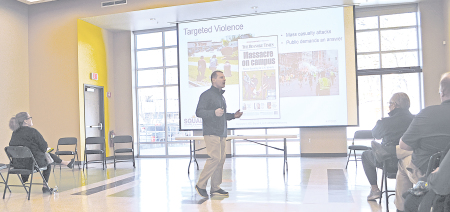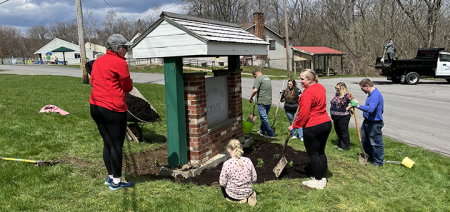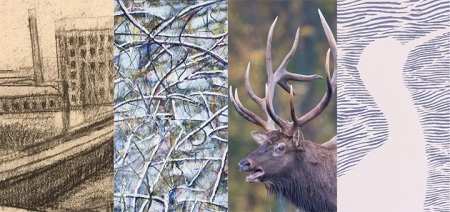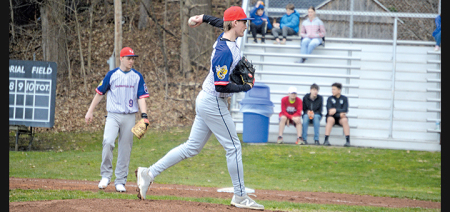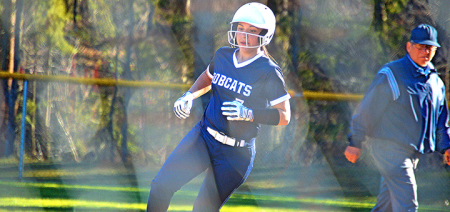Tilting At Windmills: THE GPS MURDER – Chapter 4
Published:
May 3rd, 2024
By:
Shelly Reuben

A big part of Samuel Upton’s social and emotional life revolved around his sister Maddie Upton, assistant librarian at the Madison Heights Library, in line to become head librarian after Wilma Welter, age 85, retired.
Maddie tolerated Wilma in the way that one might silently endure an opinionated and interfering great aunt. She described her supervisor’s leadership style as “the taxpayer’s lament,” because Wilma sponsored programs that interested no one but Mrs. Welter herself. This included a vegetarian cooking class that that cost the library $500 for the speaker with an additional $100 for supplies, such as ginseng (similar in appearance to witch’s hair), and ginger roots (a doppelganger for troll toes.)
Nor was Chief Upton’s sister enthusiastic about The Human Book Project. But it was to be Mrs. Welter’s final program, so Maddie bit her tongue and did what she was told. Samuel Upton, however, hated the whole idea.
“Why, Sam?” Maddie asked.
The police chief’s response was terse and unimaginative. “Because,” he said, eyelids narrowing over skeptical green eyes, “books are things that people read. And people are not books. People are just…people.”
Nevertheless, the Board of Directors of the Madison Heights Library begged to differ, and in the May 27th issue of its “Events and Activities Newsletter” announced: “The Human Book Project gives us the opportunity for one-on-one contact with people who have lived or are living interesting, unique, and extraordinary lives.”
Among the Human Books to be introduced over the course of the one-week symposium were:
- A massage therapist who had become a prison guard.
- A nun who left the church to marry her kickboxing instructor.
-A man arrested for parachuting off the Chrysler Building in a chicken suit.
- A burly junior congressman (male) who wore eyeshadow, lipstick, and a prom gown.
“And you, Sam,” Maddie added cautiously. “If I can talk you into it.”
Samuel Upton rolled his eyes.
His sister persisted. “All you have to do is wait at the circulation desk until someone checks you out. They can’t actually remove you from the library, like a book. You just sit at a table in the reading room and answer questions.”
“But…” Sam protested.
Maddie cut him off. “If a question is inappropriate, don’t answer. If you feel uncomfortable, terminate the session. Think of it as Career Day in grammar school, and that you are talking to a bunch of hero-worshipping kids.”
And so it went, until Maddie wore her brother down, and he agreed to be a Human Book.
Samuel Upton’s presentation was scheduled on a Thursday night. The entire event would last two hours, but it would be broken into four segments of roughly twenty-minutes each, with ten-minute breaks in between.
Other Human Books that night would be Myra Goldberg, a professional sex worker, Clarence Liverpool, a real estate agent turned lawyer turned ambulance chaser, and Randi Pearlmutter, a microbiologist who quit her job, enrolled in clown school, and now made balloon animals at children’s parties. Or, as Chief Upton uncharitably described those who would be sharing his Human Bookshelf: A hooker, a bottom feeder, and a buffoon.
“You need an attitude adjustment,” Maddie scolded. Or pretended to. Then she sighed and said, “Oh, boy. I’m going to owe you big time after this.”
Actually, it wasn’t all that bad.
Twelve people had lined up to “take out” the chief of police. He divided them into four groups of three and allowed them to ask questions by raising their hands. Among those he recognized were his bank teller, his pharmacist, Pete from the gas station, and Anita Butler, a piano teacher who walked her terrier, Rex, in the town square every afternoon There was also a brown-eyed woman with spiky black hair whom he vaguely remembered – or so he thought -- from somewhere, but couldn’t quite place.
After his first two presentations, the people who should have been in Samuel’s final group got tired of waiting and joined the group ahead of his, which raised its attendance to six.
Then, something odd happened. Later, when the police chief tried to analyze the situation, he concluded that a combination of fatigue and forced familiarity had inexplicably undermined his defenses. As a consequence, at 8:01 p.m., when Anita Butler asked a very specific question about his work, Chief Upton forgot that the people at his table were comparative strangers and, uncharacteristically, he answered from his heart.
Continued next Friday …
Chapter 4 of 8. See previous chapters beginning on Friday, April 12. Or check link to author archive…https://www.evesun.com/authors/31.
Copyright © Shelly Reuben, 2024. Shelly Reuben’s books have been nominated for Edgar, Prometheus, and Falcon awards. For more about her writing, visit www.shellyreuben.com
Author: Shelly Reuben - More From This Author
Comments
